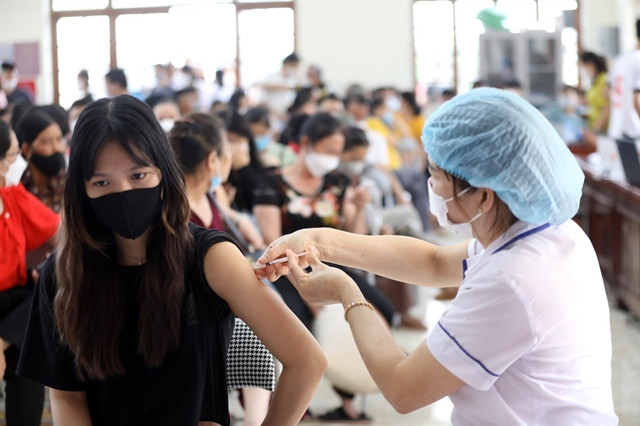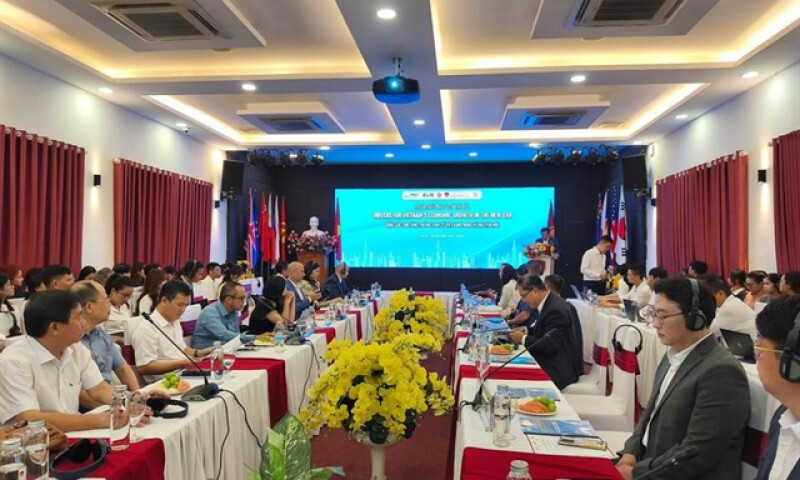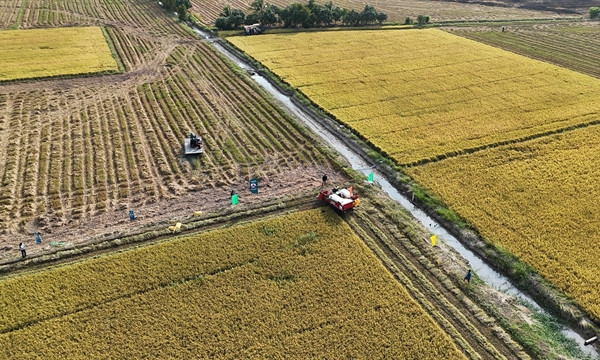Việt Nam in sustainable management phase of COVID-19 pandemic: WHO representative
World Health Organisation (WHO) representative in Việt Nam Dr Angela Pratt said that from the start, Việt Nam had well-calibrated and strong public health and social measures in place.
World Health Organisation (WHO) representative in Việt Nam Dr Angela Pratt has said that Việt Nam is in the sustainable management phase of the COVID-19 pandemic as the situation continues to stabilise with a very low number of reported daily cases, and importantly no reported deaths in over two months.
In an interview granted to the Vietnam News Agency, the official said that now in the fourth year of the pandemic, Việt Nam and the world are in a much better place than they were even 12 months ago.
“The tools and vaccines we have are proven to protect lives and significantly reduce risk of severe illness and death and also, in most places, to enable health systems to function more normally again,” she said.
She added it is hoped that 2023 will be the year in which COVID-19 can be said to be over as a public health emergency of international concern.
Assessing Việt Nam’s response to the COVID-19 pandemic for each stage of the pandemic, Angela said that from the start, Việt Nam had well-calibrated and strong public health and social measures in place.
These included a strong capacity for early detection and response, robust surveillance measures, strong border measures, and social restrictions, community adherence to personal protective behaviours; and healthcare capacity.
“All of these measures kept cases and deaths low until vaccines were available, with Việt Nam having one of the lowest death rates in the region, especially early on in the pandemic,” she said.
“This was made possible through strong and effective government leadership, great community efforts, and a tireless contribution from the health sector, in particular, health workers.”
Việt Nam did an incredible job rolling out the primary series of COVID-19 vaccines in 2021 and 2022, she said, adding that the speed and scale of the rollout, including efforts to ensure vaccines reach every corner of the country, is one of the great success stories of the country’s COVID-19 response, and the region more broadly.
She said the Government of Việt Nam, particularly the Ministry of Health, health workers, businesses, communities, and partners are all to be commended for their efforts.
“As a result of these efforts, in 2022, Việt Nam did an excellent job of transitioning to what we call the ‘sustained management’ phase of COVID-19 – balancing social and economic development with public health measures to protect the vulnerable and the health system,” she emphasised.
However, she said with the pandemic unfortunately not over yet – the world must remain vigilant, keeping up strong surveillance, ensuring everyone eligible, especially those most vulnerable, are vaccinated and boosted, and also continuing to encourage people to be mindful of their risk.
“With the government remaining vigilant and communities remaining mindful, we can continue to protect the health system and build on Vietnam’s impressive economic and social recovery,” she said.
The WHO official said that if Việt Nam maintains preparedness for worsened pandemic development, with its experience of the past three years and the National Pandemic Preparedness and Response Plan continuing to be reviewed, the country is well placed to respond to future outbreaks.
She noted that it’s really important to continue to strengthen the health system to ensure it can cope with a surge in cases; sustain and build up healthcare workforce capacity; keep up-to-date with vaccinations for eligible populations and prepare for mass vaccination if needed; and enhance multi-source surveillance, testing, and sequencing, to detect possible genomic changes and mutations.
According to the WHO, three years after WHO Director-General Dr. Tedros Adhanom Ghebreyesus declared COVID-19 a global health emergency of international concern, there have been over 760 million confirmed cases and almost 7 million deaths reported globally.
From the beginning of the pandemic to date, Việt Nam reported over 11.527 million COVID-19 infections, of that more than 10.61 million cases have recovered from the disease. COVID-19 killed 43,186 people in Việt Nam, accounting for 0.4 per cent of total infections. Nearly 266 million COVID-19 vaccine doses have been administered in the country.






